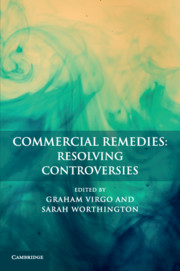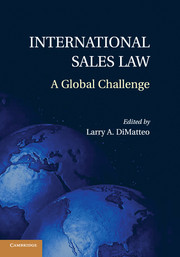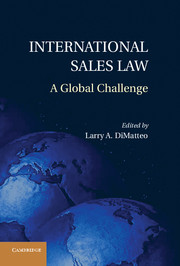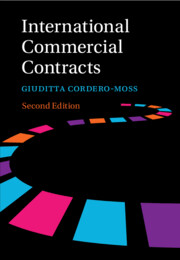Commercial Remedies: Resolving Controversies
The law of commercial remedies raises a number of important doctrinal, theoretical and practical controversies which deserve sustained and rigorous examination. This volume explores such controversies and suggests solutions, which is essential to ensure that the law is defensible, clear and just. With contributions from twenty-three leading academic and practitioner experts, this book addresses significant issues in the law which, taken together, range across the entire remedial jurisdiction as it applies to commercial disputes. The book primarily focuses on the resolution of controversies in the English law of commercial remedies, but recent developments elsewhere are also considered, especially in other common law jurisdictions. The result provides remarkably comprehensive coverage of the field which will be of relevance to academics, students, judges and practitioners.
- Includes contributions from leading experts in the field of commercial remedies, ensuring key concepts, rules and policies are covered
- Focuses on English commercial remedies but considers other common law jurisdictions where relevant
- The different chapters create a coherent and authoritative text which will appeal to academic, student and practitioner audiences
Product details
December 2018Paperback
9781316622148
624 pages
229 × 151 × 28 mm
0.75kg
1 table
Available
Table of Contents
- Part I. Introduction:
- 1. Commercial remedies: identifying themes and controversies Graham Virgo and Sarah Worthington
- 2. On the nature and function of remedies for breach of contract Jonathan Morgan
- Part II. Specific Remedies:
- 3. Repudiation: keeping the contract alive Janet O'Sullivan
- 4. Termination and the agreed sum Andrew Summers
- 5. Specific performance and change of mind Mindy Chen-Wishart
- 6. Injunctions in tort and contract Paul Davies
- 7. Rescission Nick McBride
- 8. Remedies for vindicating ownership rights in real property Amy Goymour
- Part III. Monetary Remedies:
- 9. Performance damages Charlie Webb
- 10. Proving contract damages Adam Kramer
- 11. Interest Andrew Burrows
- 12. Actionable loss of a chance Sarah Green
- 13. Gain-based remedies Graham Virgo
- 14. Exemplary damages James Goudkamp
- Part IV. Agreed and Party-Specific Remedies:
- 15. Express termination clauses Richard Hooley
- 16. Penalty clauses Sarah Worthington
- 17. Deposit clauses Carmine Conte
- 18. Flawed assets clauses Louise Gullifer
- 19. Subrogation Stephen Watterson
- 20. Equitable set-off Peter Turner
- Part V. Special Contexts:
- 21. Commercial remedies in international cases Louise Merrett
- 22. Remedies of the criminal courts Matthew Dyson and Paul Jarvis
- Part VI. The Future:
- 23. Codification of remedies for breach of commercial contracts: a blue-print Neil Andrews.





